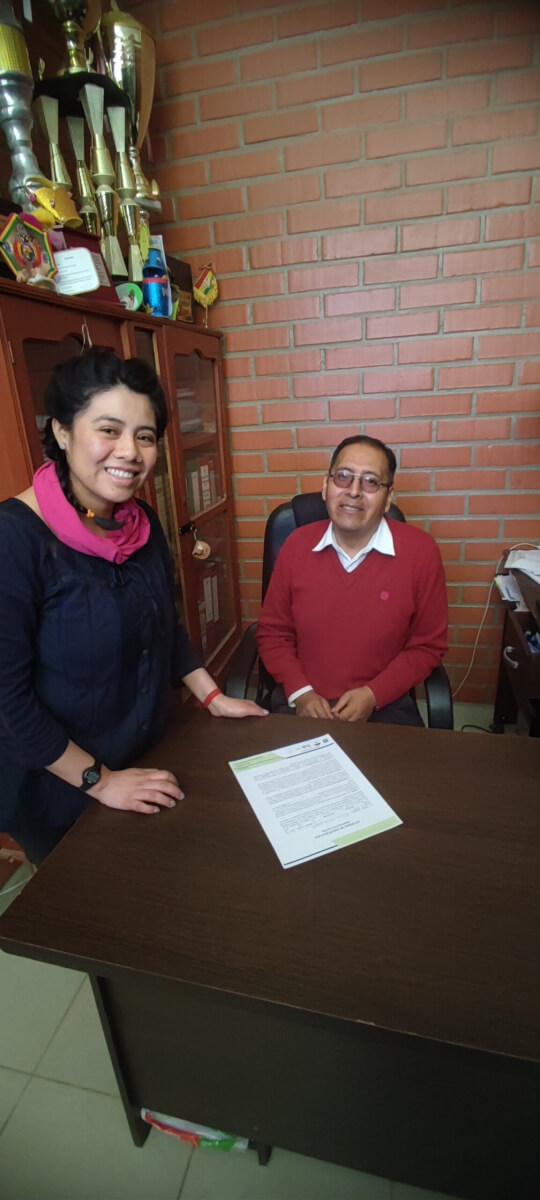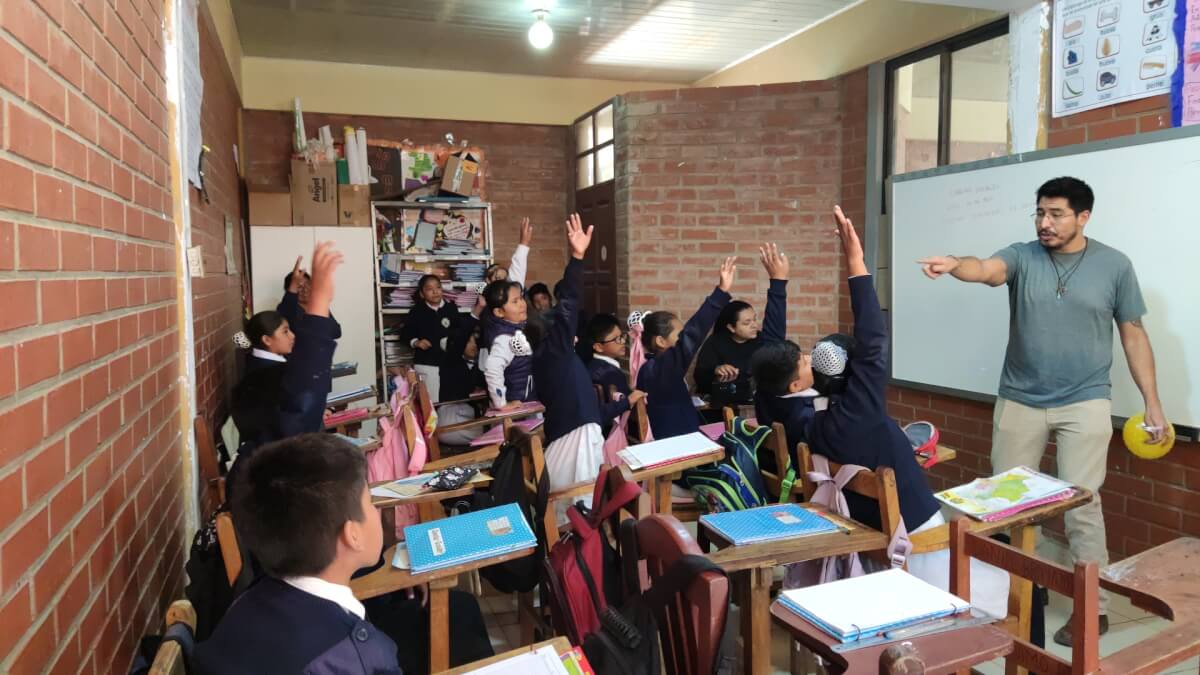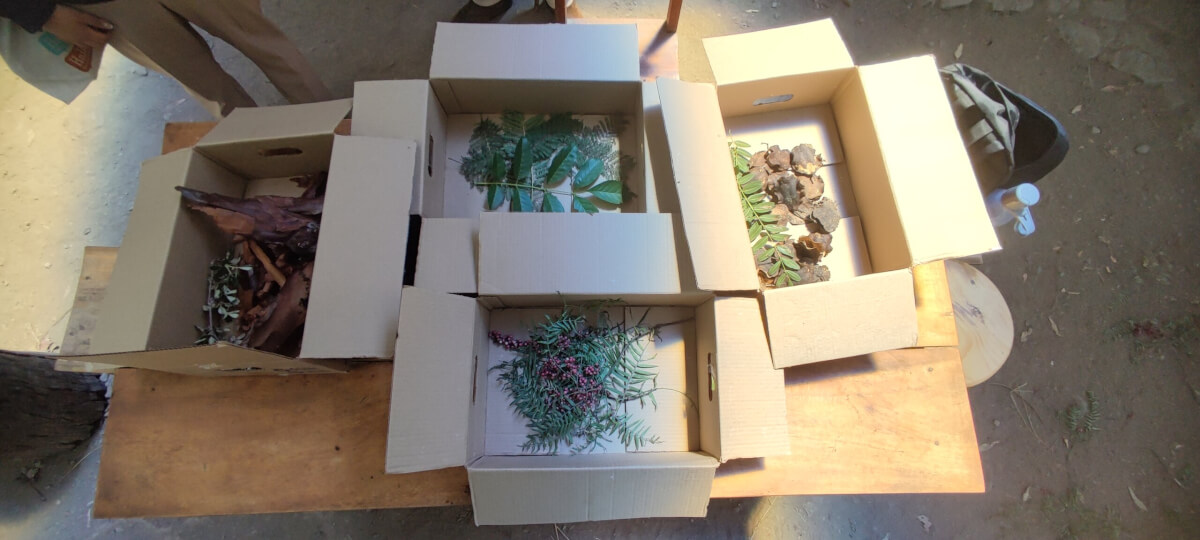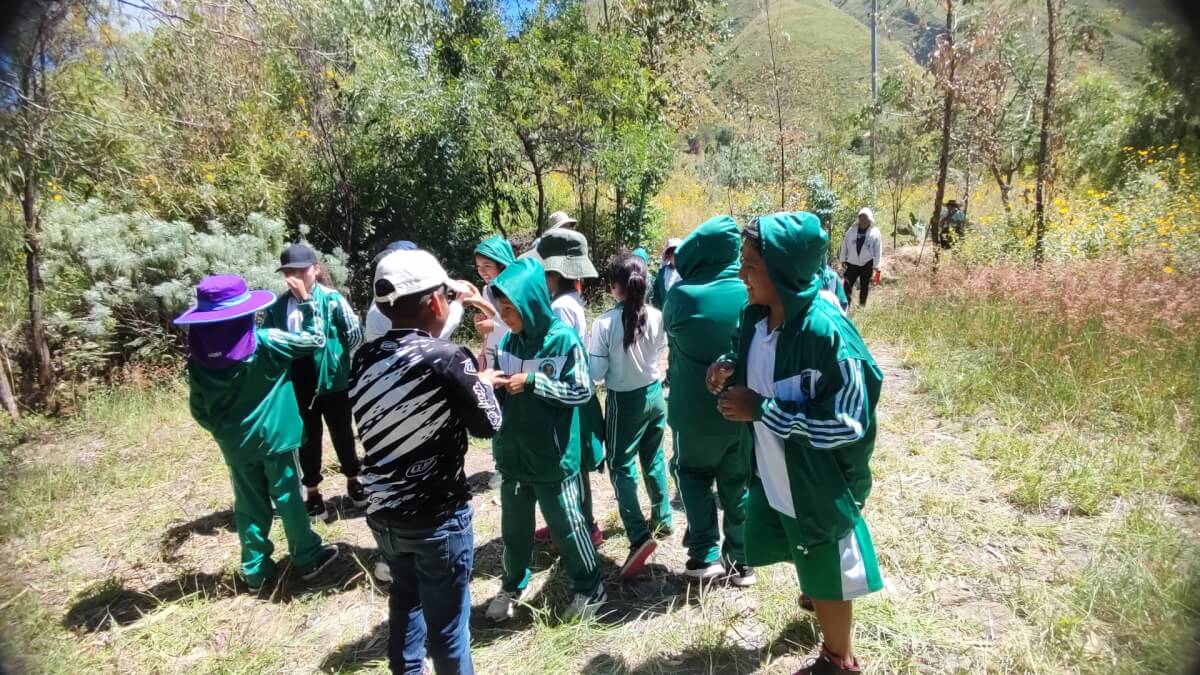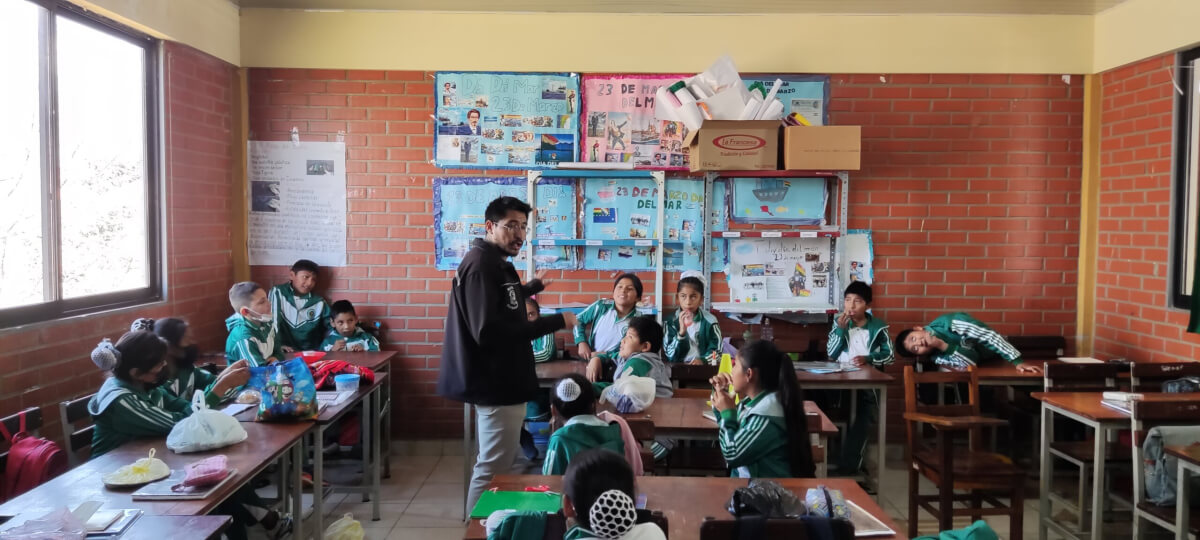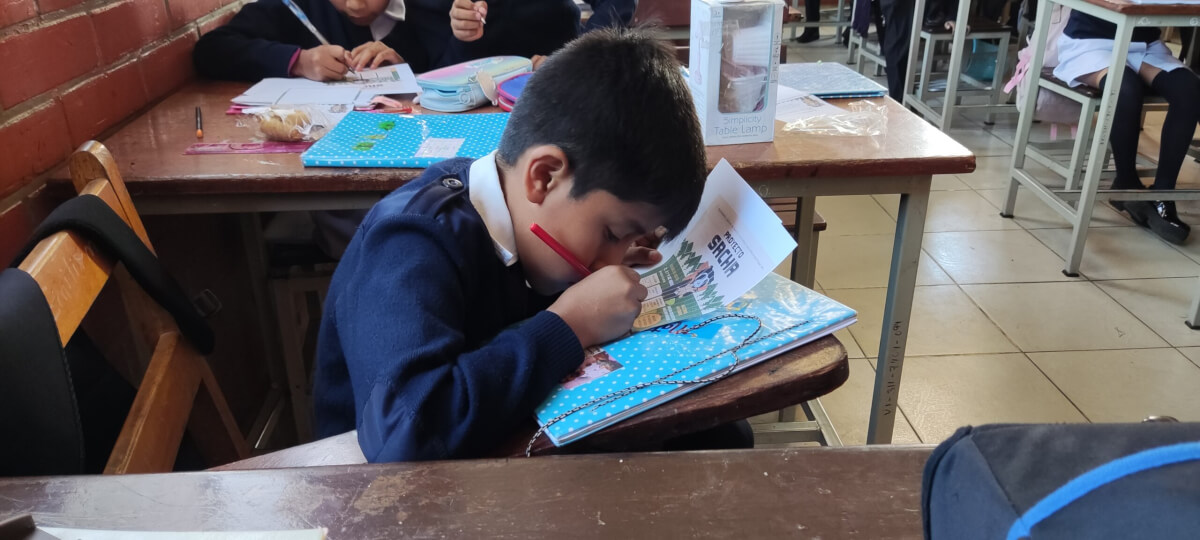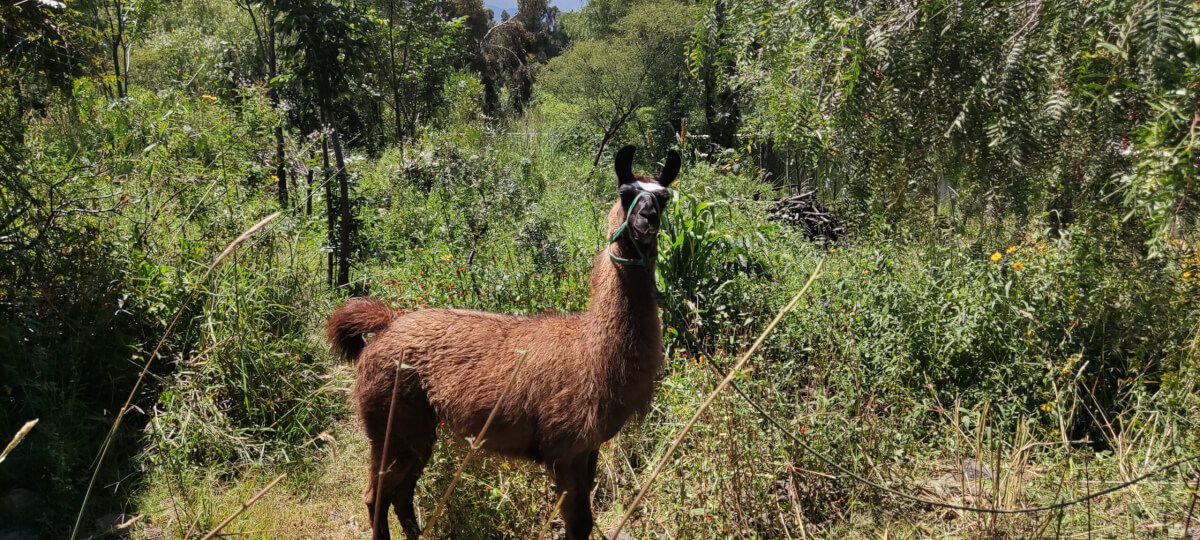Project Summary
The project aims to provide a nature based educational experience to foster conservation values, get a better understanding of the ecosystem and lead a behavioral change from an early age. As part of this initiative, a four-month pilot project was designed to implement outdoor environmental education for children between 8 to 12 years from rural and public schools in Cochabamba-Bolivia, aligned with SDG 4.
Project Manager
Country
Bolivien
Status
Ongoing since March 2024
Budget
15500
Partners
Ursula Merz Stiftung
Mollesnejta –Andean Agroforestry investigation center
Ecological farm Polen
Project goals
Impact six marginal school from peri-urban and rural schools (approx. 500 children)
Develop promotion and awareness material that supports the Bolivian scholar curriculum (video and data collection of current knowledge)
Enhancing of partner location (e.g support reforestation and gain more visibility in the society)
Launch the corporate outdoor program to guarantee the sustainability and continuation of the project
Lucia Toledo is the project manager and funder of the SACHA project. The word SACHA means tree in Quechua, one of Bolivia´s indigenous languages.
Lucia has a bachelor in Agriculture Engineering that motivated her to find more sustainable agriculture practices. It was her encounter with her now mentor, Noemi Stadler, twelve years ago that truly catalyzed her trajectory, introducing her to the science and application of Agroforestry Systems. Through this guidance, Lucia finally make the connection between sustainable land practices and the conservation of forest ecosystems, that driven her to pursue a Master’s degree in Tropical Forestry at the Technical University of Dresden (TU Dresden). Where she got a global understanding of the current challenges forest is facing.
During the fundraising and report writing workshop that weltweit Ev co-organized, her entrepreneur skills awaken leading to write a project that focuses on nature-based education for Bolivian children.
The realization of the SACHA project earned Lucia a prestigious fellowship at the International Sustainability Academy (ISA) in SDW Hamburg. Over eight months of mentorship and networking with subject matter experts, she refined and expanded her project, ensuring its effectiveness and broad-reaching impact.
Lucia firmly believes that nurturing children’s connection with nature from an early age will stimulate a deep appreciation for the environment and foster environmentally conscious decision-making in future generations.
Bolivia is among the countries with the highest absolute forest loss per capita worldwide. According Global Forest Watch in 2022, Bolivia ranked as the third country with the highest absolute deforestation rate globally for three consecutive years.
In response, Project SACHA has devised a mitigation strategy with the vision of:
„Creating a sense of belonging for everyone that visits or lives near natural sanctuaries. “
The project has two local partners: Mollesnejta –Andean Agroforestry investigation center and the Ecological farm Polen. Mollesnejta promotes forest conservation and sustainable agricultural practices through an agroforestry approach. The centre is located in the second oldest national park in the country. It introduces agroforestry systems and organises seminars and workshops for international and local farmers, students and other institutions. Polen Farm has been cultivating its land according to the principles of organic farming for many years and already functions as a local knowledge centre for ecologically sound agriculture. Both are already making an important contribution to the sustainable development of the region and have agreed to implement the programme at their strategic locations.
The project aims to expand and have more location partners so it can reach to other regions of Bolivia, recognizing the fundamental importance of ensuring that children from low-income families have access to high-quality environmental education


